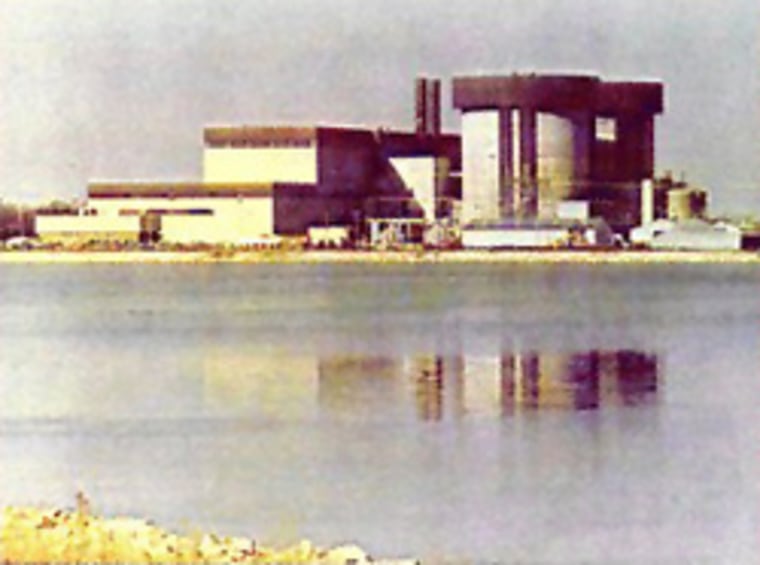Illinois filed suit Thursday against Exelon Corp. for repeated leaks of radioactive waste water contaminated with tritium into groundwater around its Braidwood nuclear plant, with prosecutors accusing the company of putting profits ahead of safety.
“Faulty maintenance led to this situation and to this lawsuit,” said Illinois Attorney General Lisa Madigan.
Braidwood has been plagued since 1996 by spills of millions of gallons of water laced with tritium — a byproduct of nuclear power generation — from an underground pipeline that normally carries effluent to a nearby river.
On Monday, a private lawsuit was filed seeking class-action status on behalf of 14,000 people who live in the vicinity of the plant, located about 60 miles southwest of Chicago.
Company position
An Exelon spokesman said that suit was “completely without merit.”
“None of the plaintiffs are alleging any health-related effects or environmental impacts on their property. They haven’t made any claims in the lawsuit of drinking water contamination or personal injury. It doesn’t claim any radiological standards were violated or that any reporting requirements were violated,” spokesman Craig Nesbit said.
Exelon has also denied breaking the law, and has said it is cleaning up the problem and working on compensating affected residents.
Nesbit said tritium levels in the groundwater beyond the plant’s boundaries were not dangerous, but that the company is offering to pay for the cost of bottled drinking water for nearby residents and to compensate neighboring property owners for proven losses.
The company maintains that it made public what it knew about the spills in a timely way, while the lawsuits charged Exelon hid the information.
Tornado worries
Meanwhile, it is storing tritiated water on site rather than discharging it through the pipe to the Kankakee River.
But prosecutors said the company was “disingenuous” in explaining the situation to the public and authorities, and may be endangering the public further by storing radioactive waste outside in steel tanks where they could be vulnerable to a tornado.

State prosecutor James Glasgow said the storage system in place for tritiated water was vulnerable to tornadoes, which strike frequently in northern Illinois and which could jettison steel tanks loaded with highly radioactive waste and cause a radiological disaster.
Authorities are seeking to gather data on health problems among local residents — including cancers, birth defects and miscarriages. Private firms unaffiliated with Exelon or the Nuclear Regulatory Commission have been hired to test for radiation.
Hundreds of millions of dollars sought
The state’s lawsuit asks the court to impose fines of $50,000 for each spill — numbering at least seven — and $10,000 per day since each occurrence. The latter could add up to hundreds of millions of dollars, Glasgow said, which would be used in what promises to be a daunting cleanup.
“What I’ve encountered is a culture of greed and deception,” Glasgow said, referring to how Exelon and its predecessors have handled the spills and the maintenance of what he said was a poorly designed, 20-year-old concrete effluent pipe.
“They say they didn’t break the law — but they did it repeatedly, ruthlessly,” Glasgow said.
